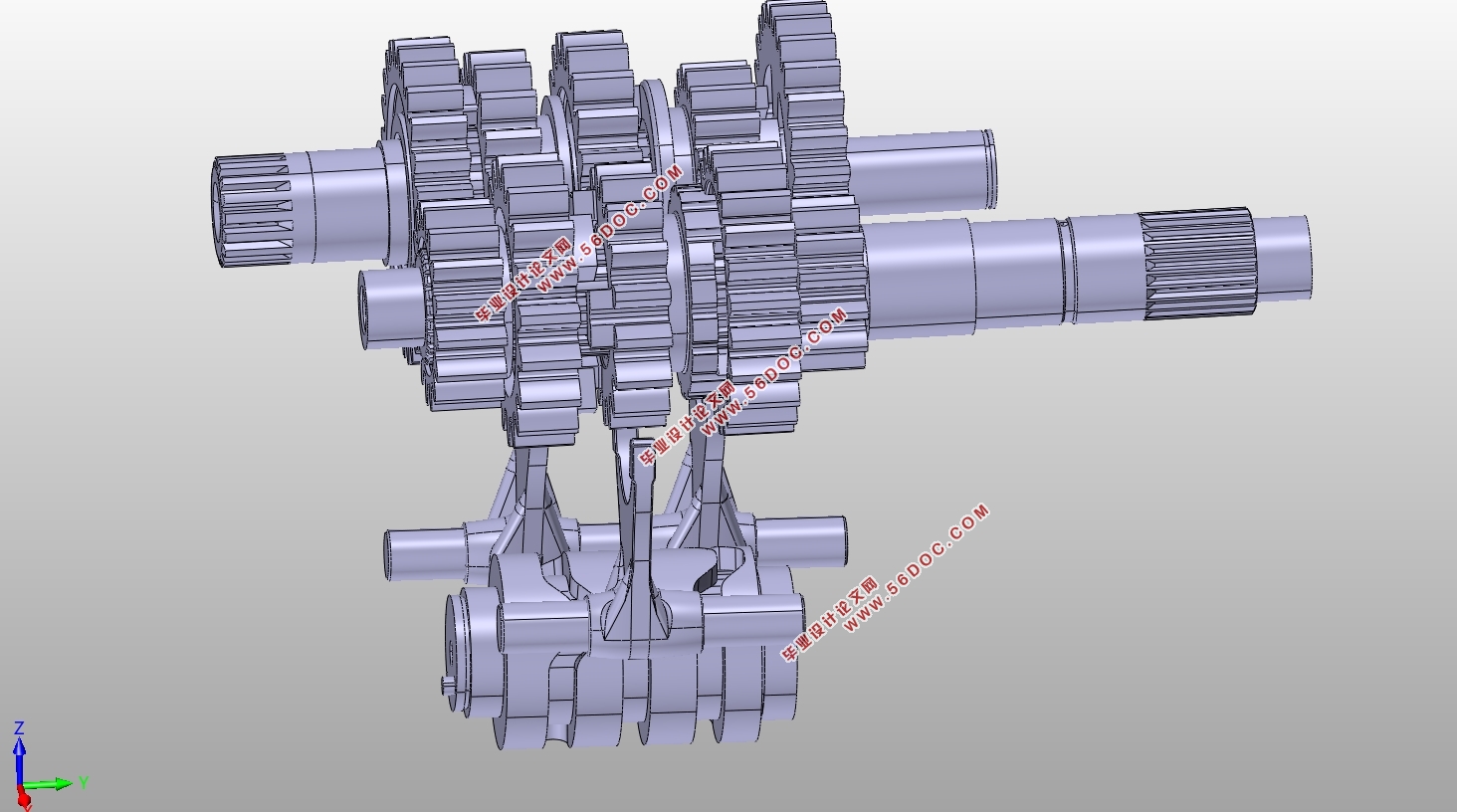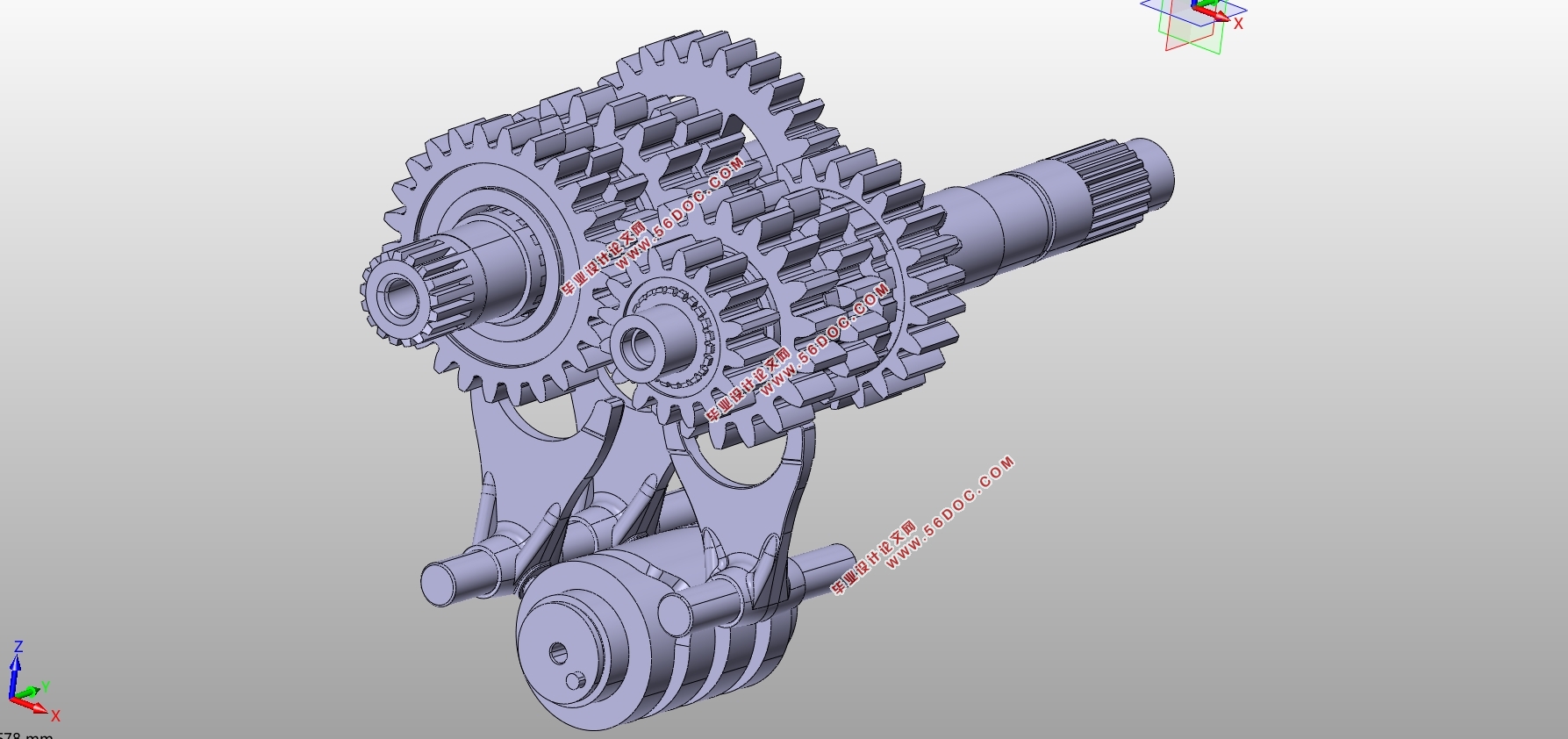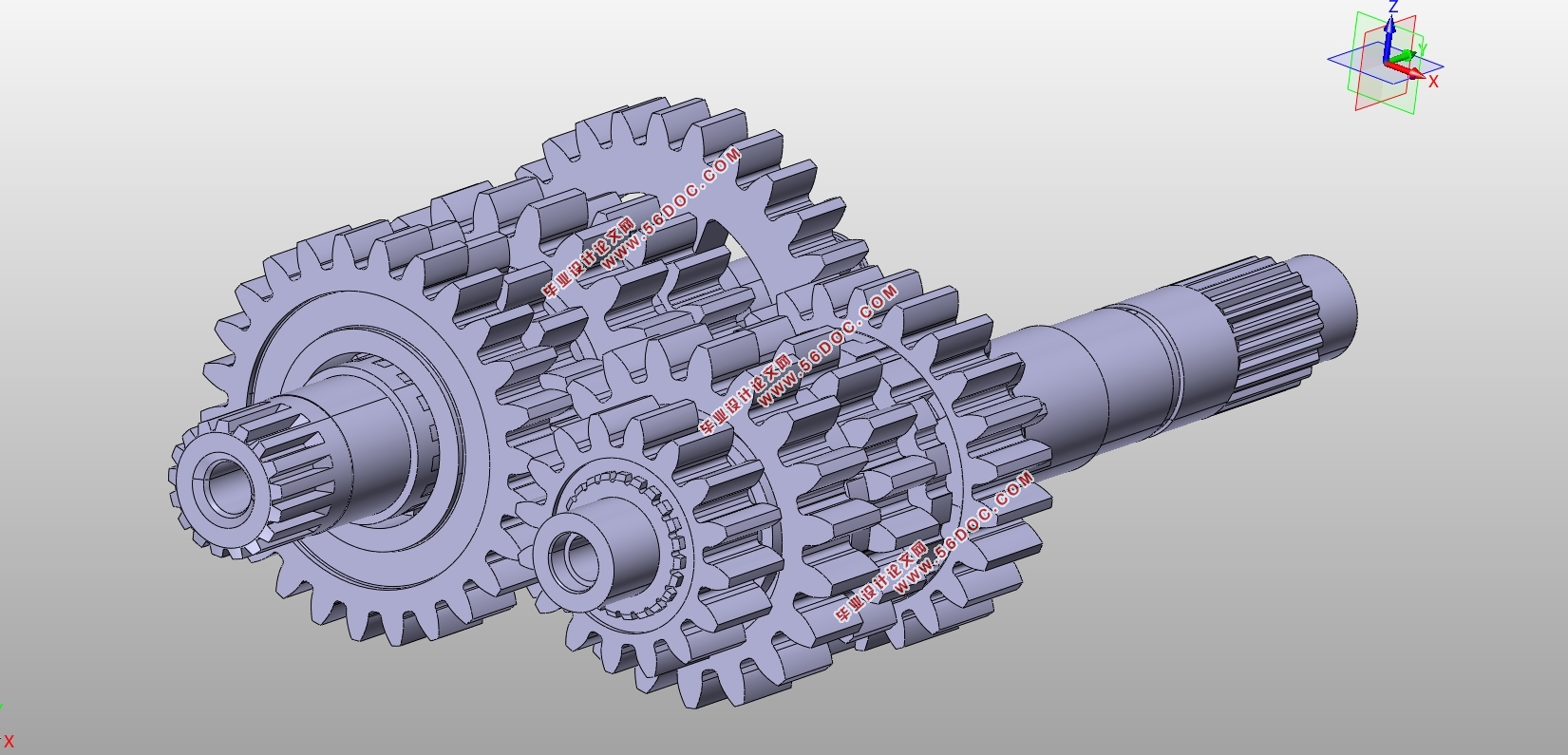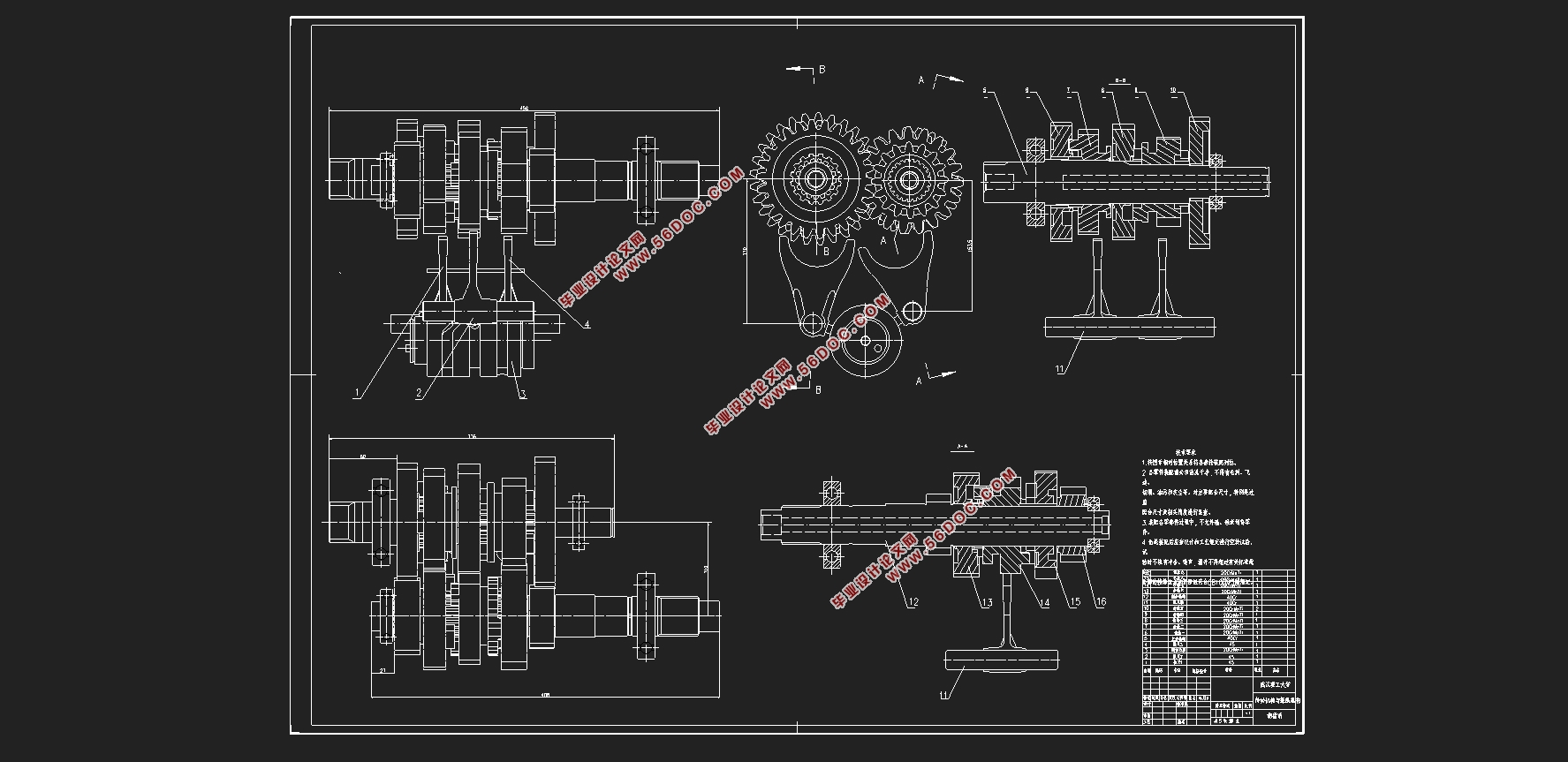方程式赛车AMT变速器设计与控制策略分析(英文版)(含CAD图,CATIA三维图)(任务书,开题报告,外文翻译,文献摘要,论文说明书英文版18000字,CAD图5张,CATIA三维图)
Abstract
Transmission, which plays a decisive role in the performance of a racing car, forms an important part of an automobile. Due to the limitation of the traditional manual rocker in a small space in the formula car and its long shifting time, the gearbox is refitted to a pneumatic poke tablet and finally achieves the resemblance of the shifting mechanism in a F1 racing car.
According to regulation of FSC , we have refitted the original gearbox, designed the pneumatic shifting system and matched the corresponding shifting strategy. The original gearbox is a two-axe ordered formation with straight sliding gear and five speed, but without a synchronizer. First, the cylindrical cams are redesigned and the gear arrangement is changed to better adapt to FSC. Second, the pneumatic operation system is matched for the newly designed gearbox, design selections are conducted in gas source, decompression, direction change and conduction respectively to allow the driver to shift without hand leaving the steering wheel. Finally, after the design of basics, a complete shift control strategy is designed for the whole system of the car to increase the shift rate with high reliability and efficiency, to reduce the operating intensity for the driver, to decrease the interruption time of power and to enhance the average speed and stability.
Keywords: Shift Control Strategy, Pneumatic Operation System, Racing Car, Gearbox






Contents
Abstract 3
Chapter 1 Introduction 1
1.1 Research Backgrounds 1
1.2 Introduction of Suspension System 2
1.3 Domestic and Foreign Research Status 3
1.4 Main Contents and Technical Scheme 4
1.4.1 Main Contents 4
1.5 Chapter Summary 4
Chapter 2 Design and Modification of a racing transmission 5
2.1Design the Racing transmission 5
2.1.1 Determine the gear ratio of each gear 5
2.2 Modification requirements and purpose 10
2.3 Transmission modification structure design 11
2.5 Chapter Summary 16
Chapter 3Pneumatic Execution System Design 17
3.1 Pneumatic system design purpose requirements 17
3.2 Pneumatic system design 18
3.2.1 Air source 18
3.2.2 Pressure reducing valve 20
3.2.3 Solenoid valve 21
3.2.4cylinder actuator 24
3.3 Arrangement and Commissioning 27
3.5 Chapter Summary 28
Chapter 4Shift Control Strategy Development 29
4.1shift process design 29
4.1.1 Upshift control process 31
4.1.2 Downshift control process 32
4.2 Anti-missing and anti-interference design 33
4.3 Chapter Summary 34
Chapter 5 Summarization and Outlooks 35
5.1 Design Summarization 35
5.2 Shortage and Outlooks 35
References 37
Acknowledgements 39
|













